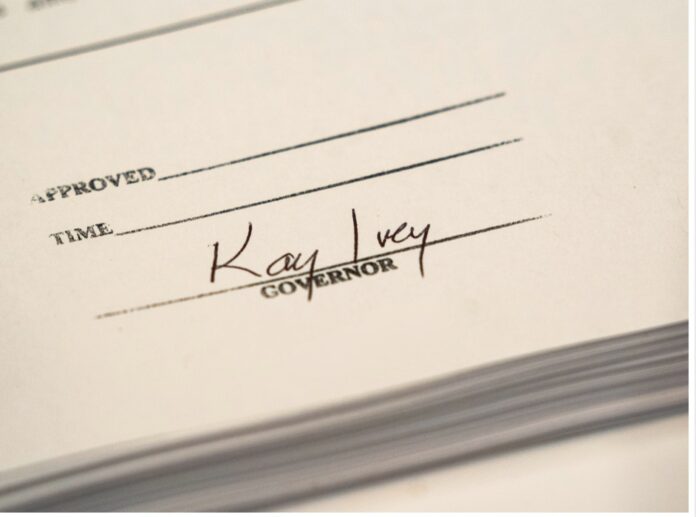Alabama has officially banned ranked-choice voting after Republican Gov. Kay Ivey signed the legislation on Friday.
Ranked-choice voting has voters rank candidates in order of preference. Those candidates who receive 50% plus one or more votes win automatically. However, if no candidate gets at least 50% of the votes cast, then the lowest scoring candidate is eliminated with his votes assigned to the other candidates. The process continues automatically until a single candidate reaches 50%.
After being persuaded by Outside dark money, Alaska voters approved the scheme in the 2020 general election and it went into effect beginning in 2022. So far, only Alaska and Maine are using the system for statewide elections.
In both states, state congressional seats immediately flipped from Republican to Democrat.
In Maine, Republican Rep. Bruce Poliquin to Democrat Jared Golden in 2018, even though Poliquin had the most votes on the first round.
In Alaska, Democrat Mary Peltola won the state’s only seat Alaska has in Congress, in spite of the fact that almost 60% of voters chose a Republican on the first round.
“Ranked-choice voting shall not be used in determining the election or nomination of any candidate to any local, state, or federal office,” says Alabama’s HB 186.
“I am proud to sign this bill which takes another step towards ensuring the confidence in our elections. As our Secretary of State Wes Allen put it, ranked-choice voting makes winners out of losers. Not only is ranked-choice voting confusing to voters, it also limits their ability to directly elect the candidate of their choice. Voting should be simple, and this complicated and confusing method of voting has no place in Alabama’s elections.”
The Alabama law takes effect Oct. 1, when it becomes the third state to ban ranked-choice voting this year, after Kentucky and Oklahoma did earlier. Eight states in all now ban the experimental voting method, including Florida, Idaho, Montana, South Dakota, and Tennessee.
Alaskans have a chance to dismantle the ranked-choice general election scheme, and the no-party primary that goes with it. Enough Alaskans signed a petition to repeal much of 2020’s Ballot Measure 2, and the question is set to appear on the General Election ballot in November.
